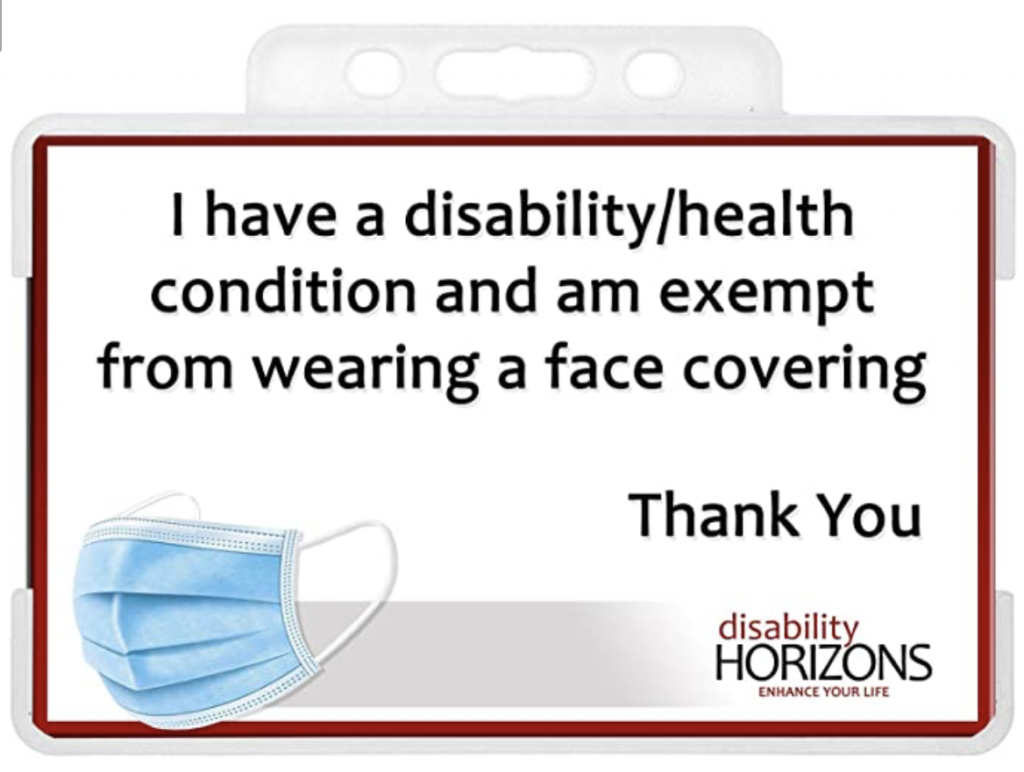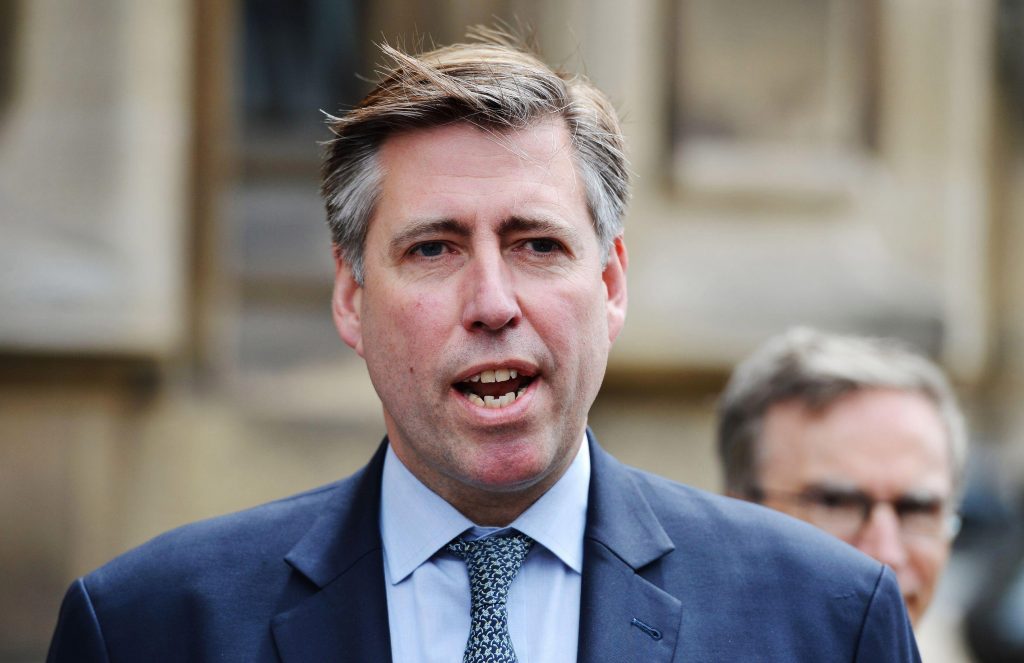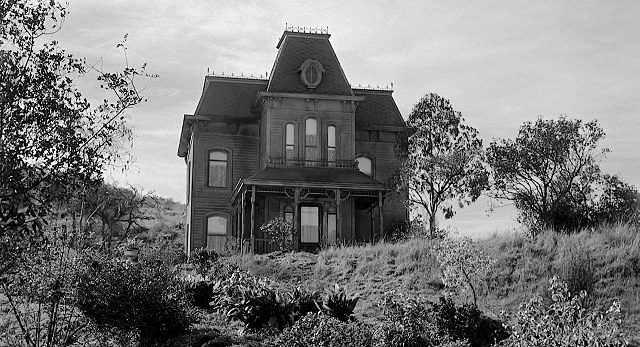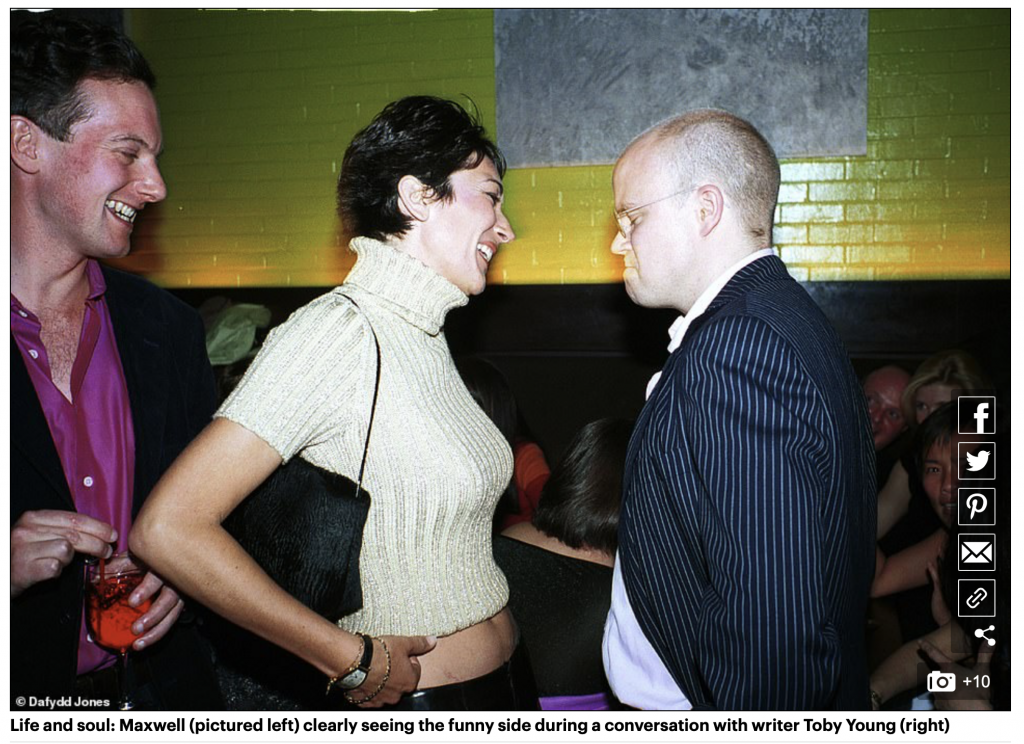Design Your Own Face Mask

You can design your own face mask here. My suggestion above, courtesy of my daughter Sasha who came up with the prototype. We were using it in our merch store but I’ve now closed that because I actually lost money in the first month of trading.
If you cannot bear the thought of wearing a face covering of any kind, even one you’ve designed yourself, here’s a handy solution:

These lanyards are available from Amazon for the very reasonable price of £4.95. Purchase here. According to this piece in Edinburgh Live, you can also get “Hidden Disability” lanyards from eBay. One seller has already clocked up £300.
Get them now while stocks last.
Lidl Won’t Enforce Mask Compliance in Wales (and Neither Will the Police)
Encouraging email from a reader in Wales;
I’ve double checked by ringing Lidl and they confirm that, though they have to recommend masks, they will not be stopping entry or accosting anyone. Our local branch staff are always very laid back and cheerful and have been throughout The Madness. Claps all round for them! Incidentally, to my knowledge not one of them has been ill since early March.
My stepson is a sergeant in the local police and they say they’re not getting involved in the mask business – there aren’t enough of them and they have a considerable increase in mental health problems and domestic abuse calls to deal with.
Why No-One Can Ever Recover From COVID-19 in England

There’s an excellent post on the Centre for Evidence-Based Medicine blog by Yoon K Loke and Carl Heneghan pointing out that, due to the way statistics are recorded by Public Health England (PHE), it’s impossible for a patient to recover from COVID-19. Here’s the key passage:
It seems that PHE regularly looks for people on the NHS database who have ever tested positive, and simply checks to see if they are still alive or not. PHE does not appear to consider how long ago the Covid test result was, nor whether the person has been successfully treated in hospital and discharged to the community. Anyone who has tested Covid positive but subsequently died at a later date of any cause will be included on the PHE Covid death figures.
By this PHE definition, no one with Covid in England is allowed to ever recover from their illness. A patient who has tested positive, but successfully treated and discharged from hospital, will still be counted as a Covid death even if they had a heart attack or were run over by a bus three months later.
This is one reason the daily PHE Covid death tolls include so many people who died weeks, sometimes months, ago – they include people who had COVID-19, made a complete recovery, then died of a completely unrelated illness.
Loke and Heneghan conclude:
It’s time to fix this statistical flaw that leads to an over-exaggeration of Covid-associated deaths. One reasonable approach would be to define community Covid-related deaths as those that occurred within 21 days of a Covid positive test result.
In summary, PHE’s definition of the daily death figures means that everyone who has ever had Covid at any time must die with Covid too. So, the Covid death toll in Britain up to July 2020 will eventually exceed 290k, if the follow-up of every test-positive patient is of long enough duration.
Worth reading in full.
Mask-Up, Granny Killer
Laura Dodsworth, the artist who’s started an ‘Art Under Lockdown‘ project, has written an excellent squib for Lockdown Sceptics about the absurdity of the mask edict. Here’s a taster:
According to Michael Gove, wearing masks is good manners. Nicola Sturgeon says they are a sign of ‘solidarity’. Matt Hancock has admitted they are to ‘give people more confidence to shop safely’. The emotionally manipulative and coercive language around masks focuses on what they represent – showing you care. Who wants to be impolite? Who wants to be derided for not caring? While very few people are wearing masks on the high street, online mask shaming is in your face. Covidiot. Selfish. Get over it. Mask up. Granny killer.
Worth reading in full.
No Cost-Benefit Analysis

The FT published a long investigation yesterday into the mistakes the Government has made in its handling of the coronavirus crisis, focusing on the week leading up to lockdown. Unfortunately, the crack investigative team simply take it for granted that we should have locked down earlier – a week earlier, to be precise – and concentrate their fire on exposing the series of blunders and missteps that meant we didn’t lock down until March 23rd.
This trope is now so firmly embedded in the mainstream media, it’s going to take a lot to dislodge it. And it received more support yesterday from Sir Patrick Vallance who told the House of Commons Science and Technology Committee that SAGE urged the Cabinet to lock down a week earlier. He said he couldn’t remember whether it was at the meeting on March 16th or 18th, but whichever it was the advice was that “the remainder of the [lockdown] measures should be introduced as soon as possible”.
One small problem with that claim, Sir Patrick: it isn’t in the minutes of the SAGE meetings for March 16th and 18th – at least, not those released so far. As readers will recall, I parsed those minutes and found no evidence that any of the Government’s scientific advisors were arguing for a full lockdown before March 23rd, let alone the Chief Scientific Advisor. Here’s what I wrote on June 11th:
At no point did SAGE discuss anything resembling a full lockdown. Indeed, SAGE noted at a meeting on March 10th that banning public gatherings would have little effect since most viral transmission occurred in confined spaces, such as within households.
The last SAGE meeting before the lockdown was on March 18th where it was noted that the impact of the social distancing measures introduced thus far would not be known for two or three weeks. The attendees did not at that stage know whether those measures would be sufficient to prevent the NHS’s critical care capacity being overwhelmed and in the absence of more data could not offer any advice on whether additional measures – such as closing bars, restaurants and entertainment centres, and limiting use of indoor workplaces – would be necessary. The only further measure SAGE recommended at that meeting was closing schools.
“SAGE advises that the measures already announced should have a significant effect, provided compliance rates are good and in line with the assumptions. Additional measures will be needed if compliance rates are low.” – Minutes of the 17th SAGE meeting on COVID-19, March 18th 2020
Is this really what we’ve got to look forward to in the forthcoming public inquiry? A forensic investigation of why the Government didn’t lock down a week earlier, with all the protagonists in the drama frantically trying to dodge the blame for the delay, rather than questioning whether we should have locked down at all?
Wake me up when it’s over.
But there is one hidden gem in the FT’s investigation. It’s in the section focusing on March 23rd, when the decision to lockdown was “finally” taken.
Later that day, a plan to lockdown the UK simultaneously finally took shape, an approach backed by leaders in Scotland, Wales and Northern Ireland.
On that fateful Friday, Cobra was chaired by Michael Gove, cabinet office minister, not Johnson. Khan says: “I went to that meeting expecting it to be London only.” Gove proposed that the pubs should close on Saturday lunchtime, but Khan and Nicola Sturgeon, Scotland’s first minister, argued that this was a disastrous idea and that Friday night would see mayhem. “There would have been an end of days party,” says one participant.
Gove agreed — Cummings had also come to the same conclusion — and a message was hastily relayed to Johnson, preparing for the 5pm press conference, that Cobra had agreed that the closure of pubs and restaurants should take immediate effect on Friday night. Only Jesse Norman, a Treasury minister, raised any doubts, asking whether there had been any cost-benefit analysis of the economic and health impacts of lockdown or consideration of less onerous alternatives. Around the room there were blank looks: the decision had been taken.
So there you have it folks. Only one person at that critical meeting on March 23rd asked whether any cost-benefit analysis of the impact of the lockdown had been done – Jesse Norman MP. And his question was answered with blank looks. Clearly, no such analysis had been done. When the Government took the decision to lock down the country, it was flying blind.
I suppose we shouldn’t be surprised, but I have to confess to a moment of shock when I read that. My position has always been that if the state is going to curtail our liberty, it needs a very good reason for doing so. My understanding was that when the decision was taken to place the entire population under virtual house arrest, the Government had calculated that it would do more good than harm – that it would have a net public health benefit. I was always sceptical about the claim that it would, but at least the Government had an arguable case – or so I thought. Turns out, they didn’t. They hadn’t made any calculations. They literally had no idea whether such a draconian act would do more good than harm. From the sound of it, it didn’t even occur to anyone in the Cabinet to ask the question. They just went ahead and removed our liberty anyway.
Unforgivable.
Graham Brady MP: No Fan of Masks

A reader has passed on the reply of her local MP – Sir Graham Brady – after she wrote to him setting out her objections to face masks. It makes for interesting reading:
Thank you for your email.
A number of constituents have written to me with their concerns of this new regulation, with reasonable questions regarding how long we may have this in place and whether this will again be extended to office and work spaces. I am pleased at least that the Government has made it clear that this requirement will not extend to offices.
Other countries such as Germany, Italy and Spain have taken a similar step to try to halt the spread of COVID-19 as their economies begin to open up. The evidence in relation to the efficacy of face masks outside a clinical setting is however, finely balanced, one local specialist said to me that if there is a benefit, it is more likely because a mask makes it less likely that the wearer will touch his face than because of any effect in preventing airborne transmission. I do not think that a compelling case has been made for something of such uncertain value to be made compulsory, but this decision has been made under emergency powers and was not debated or voted on in the House of Commons.
It is important that this regulation, along with other emergency COVID-19 legislation, should only be temporary. My biggest concern is that the government has not set out the criteria on which the decision to introduce compulsion was made, and that we remain therefore in the dark as to when it will end.
These laws sit very uncomfortably with our traditions of liberty and I shall be working to ensure that they do not continue for any longer than is strictly necessary.
Best wishes.
Yours sincerely,
Sir Graham Brady
Sad News From Ireland

A reader called Clive Buckley has been in touch to tell me about the news from Ireland. It was good. Now it’s bad.
I’m fortunate enough to have a second home in Waterford County in the Republic of Ireland where I also have an ongoing project. Converting a cowshed in to an events venue. When lockdown started I was in the UK. Managed to return to Ireland end of May and was expecting strict protocols. However, to my delight I found a healthy disregard to the regs as only the Irish know how. No queues at supermarkets, no face nappies. No pubs open, but people meeting on beaches and in each others gardens for beer and company and using their common sense. At one of these BBQs I was informed by a member of the emergency services that the total number of cases in the whole of Waterford County was 166, no deaths and I had more chance of being killed by a cow. The Government were accelerating easing of restrictions. Hotels and gastro pubs, hair salons, beauty parlours would all reopen on July 10th with full reopening of all pubs on July 20th. Happy days. They even came up with a brilliant new slogan: “Take Responsibility, Use Your Common Sense.” Why hadn’t Mr Johnson thought that one up?
Went back to the UK and returned to Ireland yesterday to continue my project now three months behind schedule, looking forward to the re-opening on July 20th and that pint of proper Draught Guinness as only the Irish know how. Then the news arrived.
Listening to Matt Cooper on Today fm it was announced the Irish Government were putting the breaks on re-opening and were going back to plan A due to an increase in infections. A massive rise in infections amongst the young taking the R number above 1. The usual rhetoric about it being cruel and indiscriminate. Numbers? Fourteen new cases and two deaths. I haven’t crunched the numbers but that looks like the virus has all but disappeared. They then wheeled out Professor Gerard Killean from the School of Biological, Earth and Environmental science to justify the new stance. Again the usual rhetoric, but when asked why is it OK for gastro pubs, hair salons, etc. to be open he agreed with the question and stated that they should never have been opened. Nothing should have opened. Not until the infection rate hits zero like New Zealand. What is it with these scientists?
So to get that pint of Guinness I have to book a table in a Gastro Pub, order a substantial order of food to a minimum of €9 (who thought that one up?) and leave after 90 mins. Back to Draught in cans.
Sue Denim Weighs in on Academy of Medical Sciences Report

Longtime Lockdown Sceptics contributor “Sue Denim” – the pseudonymous ex-Google engineer who drew attention to the shortcomings of the code underpinning Imperial’s notorious Report No. 9 – has taken a look at the Academy of Medical Sciences report that predicts 119,000 people will die in hospitals this winter if we don’t wear face coverings, etc. I wrote about it for the Telegraph on Monday (and the Times, rather oddly, wrote about it yesterday). As you’ll recall, the 37 “experts” who compiled that report relied on Imperial’s shonky computer model to come up with the apocalyptic scenario.
I took a look and noticed the following.
Why is a “researcher in atmosphere, oceans and climate” credited as a source of “additional expertise”? Why is one of the contributors from the Met Office? The only parts of the report that address the weather speak in generalities anyone could have said, things like respiratory viruses spread better in winter, or air pollution may exacerbate Covid. You don’t need to be a weather expert to know that people catch such viruses in winter.
Especially odd because the report states transmission is “dominated by indoor pathways”. So why care so much about conditions outside?
Annex 1 is bizarrely out of place for what purports to be a medical document. It’s titled “People’s Perspective” but defines people to mean patients with long-term illnesses, and BAME minorities. What about the people who don’t have long term illness? What about white people? Their perspectives don’t matter and they aren’t “involved in the decisions made about our lives”, as they put it.
It has “not been subject to formal peer review” and they “accept no legal liability for decisions made based on this evidence”.
They say that their IFR estimate is “at the time of writing” estimated to be 1.1%. As you already noted, this is far too high when compared with actual measurements. Why does their number differ so much from current information?
They provide three citations for this value, citations 37-39. Each citation is problematic.
Citation 37 dates from June 11th and is a letter that comes from Professor Ferguson’s team. It argues that herd immunity isn’t reached because number of recorded deaths varies significantly by country, so that means only different lockdowns can explain the inter-country differences.
Citation 38 is a website showing the output of a continuously updated Cambridge model. It estimates IFR at 1.3%. It’s unclear why they conclude such a different IFR from others, but one issue might be that their only sero-survey is based exclusively on NHS blood transfusion donors. Are blood donors really statistically representative of the entire UK population? How have people been donating blood in recent weeks given the lockdowns? Given Ioannidis et al were criticised quite heavily for recruiting people via Facebook, on the grounds that this may have led to an unrepresentative sample, it would appear this methodology may have far worse biases.
Citation 39 is again a paper from Neil Ferguson’s team (credited as Verity et al), which beyond being another model based analysis, dates from March 30th and it thus hopelessly out of date.
There are over 300 citations in this 78 page report. “At the time of writing” isn’t defined anywhere, but it seems likely they’ve been writing it for so long that their conclusions were based on obsolete sources by the time of publication but they didn’t want to revisit and rewrite their conclusions.
At any rate, to support their core figure they give what look like multiple citations, but in reality they’re citing the same people saying the same things in different forums. It looks more robust than it really is.
They now accept that exposure to sunlight is good for stopping Covid and prolonged indoor contact spreads it – so why did they previously recommend everyone be locked indoors and why has this prior failure not reduced their self confidence?
Interestingly, they say 10% of all excess winter deaths are caused by fuel poverty, not influenza. Attributing all excess winter deaths to influenza is a pretty typical way to guesstimate how many people it kills.
“Removing the many practical and financial disincentives/barriers to infection control measures (e.g. loss of income/employment) would improve adherence and mitigate wider health effects” 😂
They mention remdesivir and dexamethasone as potential treatments, but not hydroxychloroquine. What a shock.
Although they observe that lockdown hurts mental health in the first section, by the time they’re discussing what to do this winter they’re only interested in protecting the mental health of NHS workers.
The survey in Annex 3 is interesting.
Oddly, it appears awareness of the NHS backlog is zero amongst the general public (section 3.3, “there did not appear to be an awareness of the backlog among participants in our public dialogue sessions”).
“Participants were aware that many regular health check-ups and appointments have been cancelled… however this combination of local experiences did not translate in the group into a picture of a national backlog”.
Perhaps a way to create more lockdown skepticism is by pointing out that the NHS is now hopelessly overloaded and with no obvious way to ever catch up except by people who need treatment dying (as it’s at max capacity in normal conditions). They estimate the backlog will reach 10 million by the end of the year.
Also, people who know more about the pandemic trust scientists less:
“There was a common perception that a single scientific truth exists around the pandemic and that scientists are the ones promoting and defending it, while politicians are more focussed on protecting the economy.
“But those who were more interested in the pandemic and knew more about it were also more likely to question the mortality and infection figures, wondering whether they are being massaged or underreported. Among this group, those who distrusted the government transferred this distrust to the scientists leading the response, whose position was seen to be politicised.”
The UK May Have Achieved Herd Immunity Already, Say Oxford Scientists
I was ridiculed for making this argument in the Telegraph last Saturday, so it’s nice to get some back up from a team of distinguished Oxford scientists. Sunetra Gupta, Professor of Epidemiology at Oxford and long-standing rival of Neil Ferguson, has a preprint out in which she and her team argue that “sufficient herd-immunity may already be in place to substantially mitigate a potential second wave”. How come? T cell mediated immunity.
The Herd Immunity Threshold… may be greatly reduced if a fraction of the population is unable to transmit the virus due to innate resistance or cross-protection from exposure to seasonal coronaviruses.
Worth reading in full (although it’s quite technical).
Care Home Death Mystery

A probate lawyer has emailed me to tell me about a care home death that strikes him as suspicious.
I recently dealt with an Estate where the person died in a nursing home in April and where the Death Certificate, which was issued two days after death, gives the sole cause of death as “COVID-19 (confirmed)”. The speed with which the Death Certificate was issued is, in itself, suspicious, as I know from other clients whose relatives died around that time that it was taking at least a couple of weeks to get the Death Certificate as Registrars had cancelled all face-to-face meetings.
However, apart from the fact that the deceased was nearly 94 and could therefore quite easily have died at any time just from old age, I have a friend who works in that nursing home and who tells me that the staff there have not been made aware of even a single case of COVID-19 amongst the residents, let alone any deaths.
This suggests to me that either the doctor deliberately falsified the Death Certificate (which surely must be a criminal offence), or that the management of the home has not given the staff information which is crucial for them to protect themselves and the other residents (which is likely to be a serious breach of Health & Safety legislation).
Sadly there is no way of knowing, because the funeral has taken place and even if the family were to challenge the cause of death, no doubt they would be told that the test samples (if there were any, which I doubt) have been lost or destroyed.
I no longer believe anything this Government tells me about COVID-19 and it never ceases to amaze me how many people do seem to trust them (over things such as face masks), when those same people would normally not believe anything the Government (especially Boris) tells them!
He makes a very good point and it reminded me of the late David Crowe’s analysis for Lockdown Sceptics of why Sweden has suffered so many deaths in care homes. Could it be that the real reason for the high death toll in care homes during the lockdown is not that COVID-19 ripped through them, killing elderly residents, but because, for a variety reasons, those residents were badly neglected? Managers were distracted by the need to obtain PPE and put social distancing protocols in place, staff went off sick, relatives weren’t able to visit to make sure their loved ones were okay, and as a result tens of thousands of people died. However, rather than admit it was due to negligence, the care home managers simply told the doctors that the residents in question had died of coronavirus and the doctors were happy to put that on the death certificate.
Round-Up
And on to the round-up of all the stories I’ve noticed, or which have been been brought to my attention, in the last 24 hours:
- ‘The Government has lost control‘ – Good piece in Spiked by Ben Pile
- ‘With all these confusing mask messages, I’ve forgotten how to be human‘ – Strong piece by Judith Woods in the Telegraph
- ‘Wales BANS public transport users from talking on mobile phones, reading newspapers, eating food or running for the bus in new Covid rules‘ – I wonder how many train services in Wales will still be running in a year’s time?
- ‘The lost boys: the white working class is being left behind‘ – Excellent cover story by Christopher Snowdon in this week’s Spectator
- ‘Millionaires for Humanity‘ – No, it’s not the Onion or the Bablyon Bee, although it might as well be
- ‘The COVID-19 Panic Shows Us Why Science Needs Skeptics‘ – Good piece by Peter St. Onge for the Mises Institute blog
- ‘Back to School? “No Thanks” Say Millions of New Homeschooling Parents‘ – That’s the response of millions of Americans after the closure of schools. Will millions of British parents react the same way?
- ‘Why Sweden Succeeded in “Flattening the Curve” and New York Failed‘ – Good analysis for the Foundation for Economic Education blog. Tl;dr: New York did less to protect its elderly and vulnerable population. Lots of graph porn
- ‘If this is the best argument Matt Hancock’s got, the public inquiry will be a horrorshow‘ – Michael Deacon, the Telegraph‘s Parliamentary sketch writer, on a bad day at the office for Matt Hancock
- ‘The Royal Society of Medicine in conversation with Lord Sumption‘ – Lord Gumption interviewed by the Royal Society of Medicine. You tell em, m’lud
- ‘Pizza Express to close dozens of restaurants‘ – Too sad. A Young family favourite. Mrs Young worked as a waitress in Pizza Express aged 20 and I’m partial to the Quattro Formaggi with extra ham
- ‘Corona: The Simple Truth in Six Minutes‘ – Excellent video summing up all the myths about coronavirus and everything we now know to be true. Show it to your mask-wearing, Covid Nazi children
Theme Tune Suggestions By Readers
Only one today: “The Masquerade” by George Benson.
Small Businesses That Have Re-Opened
A few weeks ago, Lockdown Sceptics launched a searchable directory of open businesses across the UK. The idea is to celebrate those retail and hospitality businesses that have re-opened, as well as help people find out what has opened in their area. But we need your help to build it, so we’ve created a form you can fill out to tell us about those businesses that have opened near you. Now that non-essential shops have re-opened – or most of them, anyway – we’re now focusing on pubs, bars, clubs and restaurants, as well as other social venues. As of July 4th, many of them have re-opened too, but not all. Please visit the page and let us know about those brave folk who are doing their bit to get our country back on its feet – particularly if they’re not insisting on face masks! Don’t worry if your entries don’t show up immediately – we need to approve them once you’ve entered the data.
Note to the Good Folks Below the Line
I enjoy reading all your comments and I’m glad I’ve created a “safe space” for lockdown sceptics to share their frustrations and keep each other’s spirits up. But please don’t copy and paste whole articles from papers that are behind paywalls in the comments. I work for some of those papers and if they don’t charge for premium content they won’t survive.
I know it becomes difficult to navigate the comment threads after 24 hours. One alternative to continuing to post below my updates is to move to our new Lockdown Sceptics Forums, which webmaster Ian Rons has just created. You’ll need to verify your email address before you can start posting, but they should be relatively easy to navigate. Apologies for not creating them sooner. Any problems, email Ian here. Or just email him to thank him for creating such a great website.
Shameless Begging Bit
Thanks as always to those of you who made a donation in the last 48 hours to pay for the upkeep of this site. It usually takes me several hours to do these updates, which doesn’t leave much time for other work. If you feel like donating, however small the amount, please click here. And if you want to flag up any stories or links I should include in future updates, email me here.
Gone Fishing
I’m off to Italy today, back next Friday. Hoping to do my bit for the Italian economy, which is facing a “disaster” due to the lack of tourism, according to the Telegraph. I’m heading to Venice with the family for three nights, followed by four nights in the Dolomites. I will try and get at least one update done from the mountains, but cannot promise it will be very long as I need a bit of a break. Hopefully, the new Lockdown Sceptics Forums will sustain you all until my return.
Spectator Column

In this week’s Spectator I’ve written about the misfortunate of having my name included in Jeffrey Epstein’s “little black book”.
The column begins:
Every time Jeffrey Epstein is in the news, I start getting calls from strangers wanting to scream abuse at me. This happened a lot when the billionaire financier was found dead in his jail cell last year after being arrested on sex trafficking charges, and it has started again following the arrest of his ex-girlfriend Ghislaine Maxwell a couple of weeks ago. The reason is that my contact details were in Epstein’s “little black book”, and whenever his name pops up some kindly soul takes it upon themselves to post a picture of the relevant page, which shows my mobile phone number, on Twitter. I may have to change my number, so frequent have the calls become.
I then make a protestation of innocence that won’t convince the peado-hunters:
I can honestly say, hand on heart, I’ve no idea how I ended up in Epstein’s address book. I never met him and never set foot in any of his houses, let alone on his private island. Not that anyone believes me when I say this. Ever since the contents of the book were published on a gossip website in 2015, the people in it have been frantically protesting their innocence. Charles Finch, the film producer, told the New York Times he had no idea why his name was there, as did Vanessa von Bismarck, the founder of a PR company. Joan Juliet Buck, the former editor of French Vogue, said: “As far as I know, I never met Epstein. I never went to any of those famous parties at the biggest house in New York City.” To the conspiracy theorists piecing together the web-like connections between the dramatis personae, these denials might as well be admissions of guilt.
My theory is that, in reality, the address book belonged to Ghislaine Maxwell (and I’m 99.9% sure I’m right):
My best guess is that, in reality, the address book belonged to Ghislaine, whom I do know slightly. When I lived in New York between 1995 and 2000, I bumped into her occasionally at parties and the London address listed as mine dates back to that period. (I sometimes worry about a mob of enraged paedo-hunters turning up outside my old Shepherd’s Bush bedsit and demanding justice.) Rather unhelpfully, the Daily Mail recently ran a picture spread showing Ghislaine out and about “in society” and including a photo of me saying something funny to her in a nightclub, making her howl with laughter. Ever since, that picture has been posted dozens of times on Twitter, alongside the relevant page in the “little black book”, as if it were proof that I was a member of Epstein’s inner circle. It’s guilt by association, although as I point out to the screamers on the other end of the phone, Ghislaine hasn’t actually been found guilty of anything. Needless to say, the concept of “innocent until proven guilty” doesn’t cut much ice with them.
Worth reading in full.
Salem 2.0
I thought I’d give my readers something to chew on while I’m on a break: Salem 2.0: The Return of the Religious Police to the Public Square. This is a book about cancel culture that I’ve been working on for a while now, but which took a back seat during the coronavirus crisis. Hoping to get back to it as the crisis recess – although that’s happening more slowly than I hoped. It’s a work in progress, so don’t expect too much. The shape of it should be pretty clear, however.












To join in with the discussion please make a donation to The Daily Sceptic.
Profanity and abuse will be removed and may lead to a permanent ban.